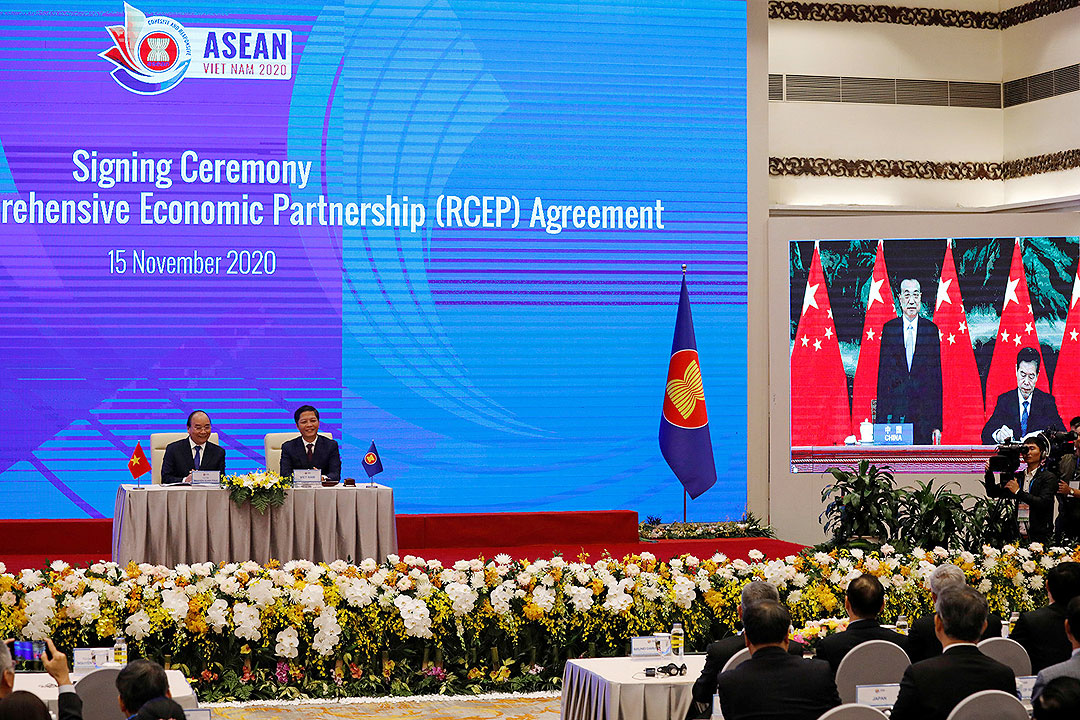Bigger DA budget seen needed prior to RCEP market opening

By Alyssa Nicole O. Tan, Reporter
SENATORS who will serve in the next Congress said agriculture budgets must be enlarged to make farmers more competitive in preparation for the market opening contemplated under the proposed Regional Comprehensive Economic Partnership (RCEP).
Francis Joseph G. Escudero, a recently proclaimed Senate candidate, told BusinessWorld in a Viber message that the agriculture industry can only be made more competitive “by increasing the budget of agriculture which, for 2022, is only 10% of the budget of the DPWH (Department of Public Works and Highways).”
About P786.6 billion was allocated to the DPWH in the 2022 General Appropriations Act, while the Department of Agriculture (DA) and National Irrigation Administration were provided P102.5 billion.
Business groups that support RCEP have backed bigger agriculture budgets that are more closely aligned with the spending levels of other ASEAN economies.
“We see our membership in RCEP as an important challenge to our government to step up genuine and meaningful support for Filipino producers, especially in the agriculture sector, which is the backbone of the Philippine economy. We, therefore, urge the government to provide a substantial increase in the agriculture budget commensurate to that provided in our comparable ASEAN neighbors, as we urge our Senators to ratify the RCEP Agreement without delay,” various chambers of commerce said in a joint statement.
Re-elected Senator Ana Theresia N. Hontiveros-Baraquel told BusinessWorld in a Viber message also pointed to the need for increased budget utilization and measures against the smuggling of farm goods.
“According to the farmers and fishermen themselves, the government must first prove that it is monitoring the DA budget because its unliquidated expenses have reached P22 billion, according to the 2020 report of the CoA (Commission on Audit),” she said.
“We also need an oversight committee against smuggling and strict trade safeguard mechanisms to ensure that the sales of our producers are not affected,” she added, noting that she agreed with demands for stronger quarantine and border control measures to prevent the entry of viral diseases such as African Swine Fever.
The best indicator that the Philippines is strengthening and developing the industry is if the budget set aside for the DA is at least 8% of total appropriations, or about P424 billion of the proposed P5.3-trillion 2023 budget, Ms. Hontiveros said.
“Pushing for this marked increase is a strong signal of institutional support for all farmers, fisherfolk, and various producers,” she added.
Senate Foreign Relations Committee Chairman Senator Aquilino Martin L. Pimentel III has said it would be up to President-elect Ferdinand R. Marcos, Jr. to endorse the trade deal to the Senate when the 19th Congress opens next month.
“The 19th Congress (will) wait for (Office of the President) to endorse the said treaty again to the Senate,” he said in a mobile message to BusinessWorld, noting that previous deliberations on the free trade deal will be made part of the committee’s records while new hearings will be held by the appropriate Senate committee in the incoming administration.
Mr. Pimentel said there was no vote on the RCEP since only 17 senators were present during plenary. The trade deal needed 16 affirmative votes to be ratified by the Senate.
“Two senators were abroad, one quarantined, two went out. In short, many members were not on the floor. We didn’t want to deprive them the chance to participate and or vote on the measure,” he said.
The RCEP, which came into force on Jan. 1 in other signatory countries, involves Australia, China, Japan, South Korea, New Zealand and the 10 members of the Association of Southeast Asian Nations (ASEAN).
The Philippines is one of three ASEAN countries that have not signed on to RCEP, along with Indonesia and Myanmar.
“The only question that needs to be answered is what is the real benefit of RCEP for Filipinos? Because we seem to be on the losing side,” Ms. Hontiveros said.
She noted that the agreement is predicted to worsen the Philippines’ trade balance, leading to job losses and a $58 million or a P3 billion drop in annual tariff revenue. Under the RCEP, the Philippines only made concessions on 33 tariff lines, which are equivalent to 0.8% of total imports and 1.9% of all agriculture tariff lines.
Although net exporters of intellectual property may benefit more due to the increased protection under the treaty, Ms. Hontiveros said the Philippines is a net importer.
She also said the treaty is not likely to benefit small and medium enterprises as cooperation mechanisms between developed countries and developing countries are voluntary and not enforceable.
“Virtually all agricultural groups in the Philippines have opposed RCEP — from small farmers to big agriculture groups,” she said. “We must listen to why there is an overwhelming consensus because they are the ones who will experience the first wave of impact after its implementation.”
Mr. Escudero said: “The playing field between our farmers and that of other countries is clearly not level and will only result in benefits to the more competitive country and its farmers, not ours.”
“Putative future gains should never outweigh definite losses and suffering by our farmers given the imbalance I mentioned above,” he added.
The DA has recommended that its budget be reoriented towards diversification, value addition and consolidation of production to improve volume and productivity.
An enhanced marketing campaign for Philippine products should also be implemented so producers can maximize benefits from expanded market access once RCEP is ratified, the DA said.



